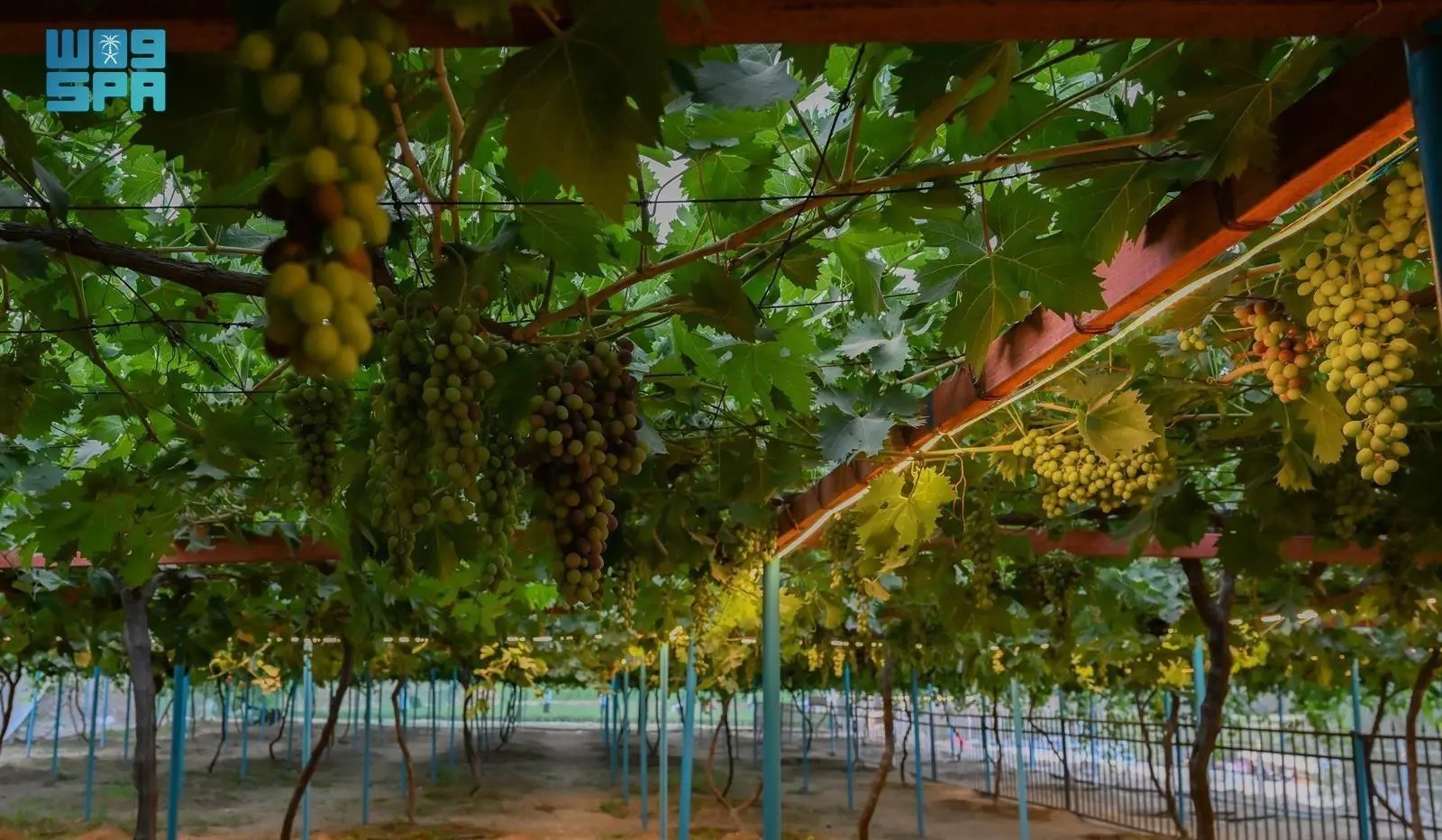
51 Hectares of Al-Baha Grape Farms Yield Up to 772 Tons Annually
Al-Baha Region is considered one of the Kingdom’s most important agricultural regions due to its abundant natural resources, including fertile soil, plentiful groundwater, and the year-round flow of valleys.
The vineyards spread across the region and its governorates create a captivating natural landscape, producing the best crops at this time of year, which are known for the quality, variety, and abundance of their fruit. This comes amid growing interest among young people in pursuing grape cultivation, a profession inherited from their fathers and grandfathers through a journey marked by challenges that reflect the values of giving, care, and sustainability.
Director General of the Ministry of Environment, Water and Agriculture's Al-Baha branch Fahad Al-Zahrani explained to the Saudi Press Agency (SPA) that grape cultivation is a promising sector attracting increasing interest from farmers. The current cultivated area in the region amounts to 51 hectares, with an annual production of 772 tons of the finest grape varieties.
He pointed out that the Grape City Project, currently being launched in Baljurashi Governorate, is being developed over an area of 790,000 square meters. The project will serve as an integrated platform to support grape production by providing advanced facilities and services, including sorting, packaging, refrigeration, and marketing. This will help raise product quality, enhance competitiveness in local markets, and enable producers to directly reach consumers through organized sales channels.
Al-Zahrani emphasized that the ministry’s branch is working to empower farmers through government support programs. Grape farmers have benefited from the Sustainable Agricultural Rural Development Program (REEF), which provided financial and technical support to increase production efficiency. Several farms have also received support through the Organic Agriculture Program to obtain organic certification and adopt environmentally friendly practices, contributing to improved product quality.








